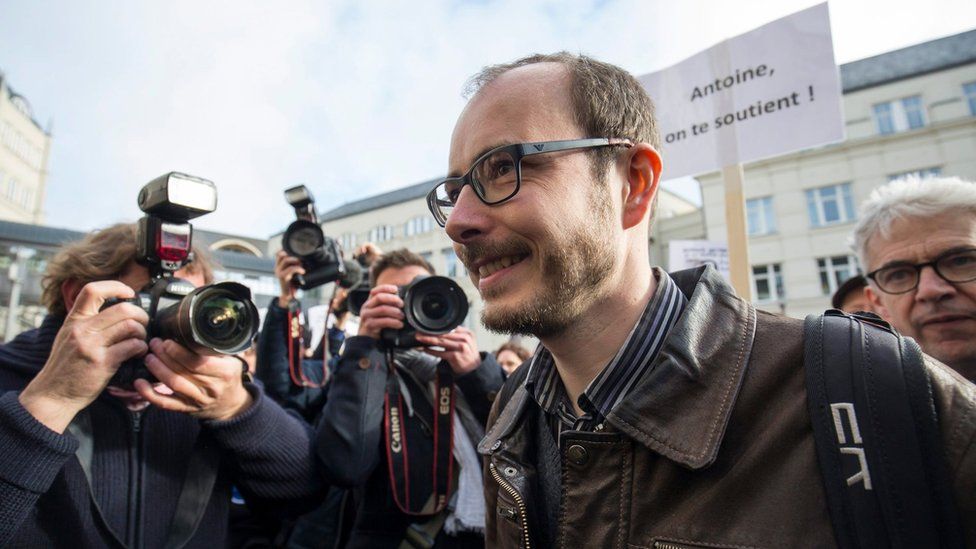France backs defendant as LuxLeaks trial starts
- Published

France's finance minister has offered assistance to one of three French men who have gone on trial in Luxembourg over the leak of documents revealing corporate tax deals.
Michel Sapin told parliament that Antoine Deltour was "defending the general interest".
Mr Deltour is accused of passing information to a journalist.
The LuxLeaks scandal cast light on how Luxembourg helped giant companies slash their global tax bills.
Mr Deltour and his co-defendants could face up to 10 years in jail.
The government and companies named say their tax practices are not illegal.
It was the biggest leak of its kind until the Panama Papers this year showed how the rich and powerful use tax havens to hide their wealth.
'Public interest'
Mr Deltour, a former auditor at PricewaterhouseCoopers (PwC), is accused of passing information on clients to French journalist Edouard Perrin, who first broke the story on French TV in 2012, in collaboration with the BBC's Panorama.
He faces charges of theft, revealing business secrets, violation of professional secrets and money laundering.
Raphael Halet, another former PwC employee, is suspected of a separate leak and faces the same charges. Mr Perrin is accused of being an accomplice.
Prosecutors say that together the data was later used by the International Consortium of Investigative Journalists in their November 2014 story. The tax breaks involved 340 companies.
As he arrived for the first day of his trial, Mr Deltour told AFP news agency he was "very calm, I acted in the public interest". Supporters gathered outside the courtroom chanted "thank you Antoine, thank you Antoine!"
Addressing the French parliament, Mr Sapin said he had asked the French ambassador to Luxembourg to "assist [Mr Deltour] at this difficult time when he defends the general interest".
It was thanks to Mr Deltour, he added, that an end was being brought to the opaque system that prevented European countries finding out the tax deals made by large companies in Luxembourg. "In turn I would like to offer him all our solidarity," he said.
Mr Sapin has tabled a bill, due to be debated in June, which he says will promote economic transparency as well as protect the anonymity of whistleblowers.
While Luxembourg has laws protecting whistleblowers, they are confined to exposing illegal practices. Civil rights groups have attacked the case.
"Deltour should be protected and commended, not prosecuted," said Cobus de Swardt, the Managing Director of Transparency International.
Nearly 130,000 people have signed an online petition in support of Mr Deltour.
The scandal put pressure on European Commission President Jean-Claude Juncker, who led Luxembourg when many of the tax breaks were implemented.
He has denied wrongdoing and has backed new EU rules to make corporate taxation more transparent.
- Published3 April 2016
- Published8 April 2016